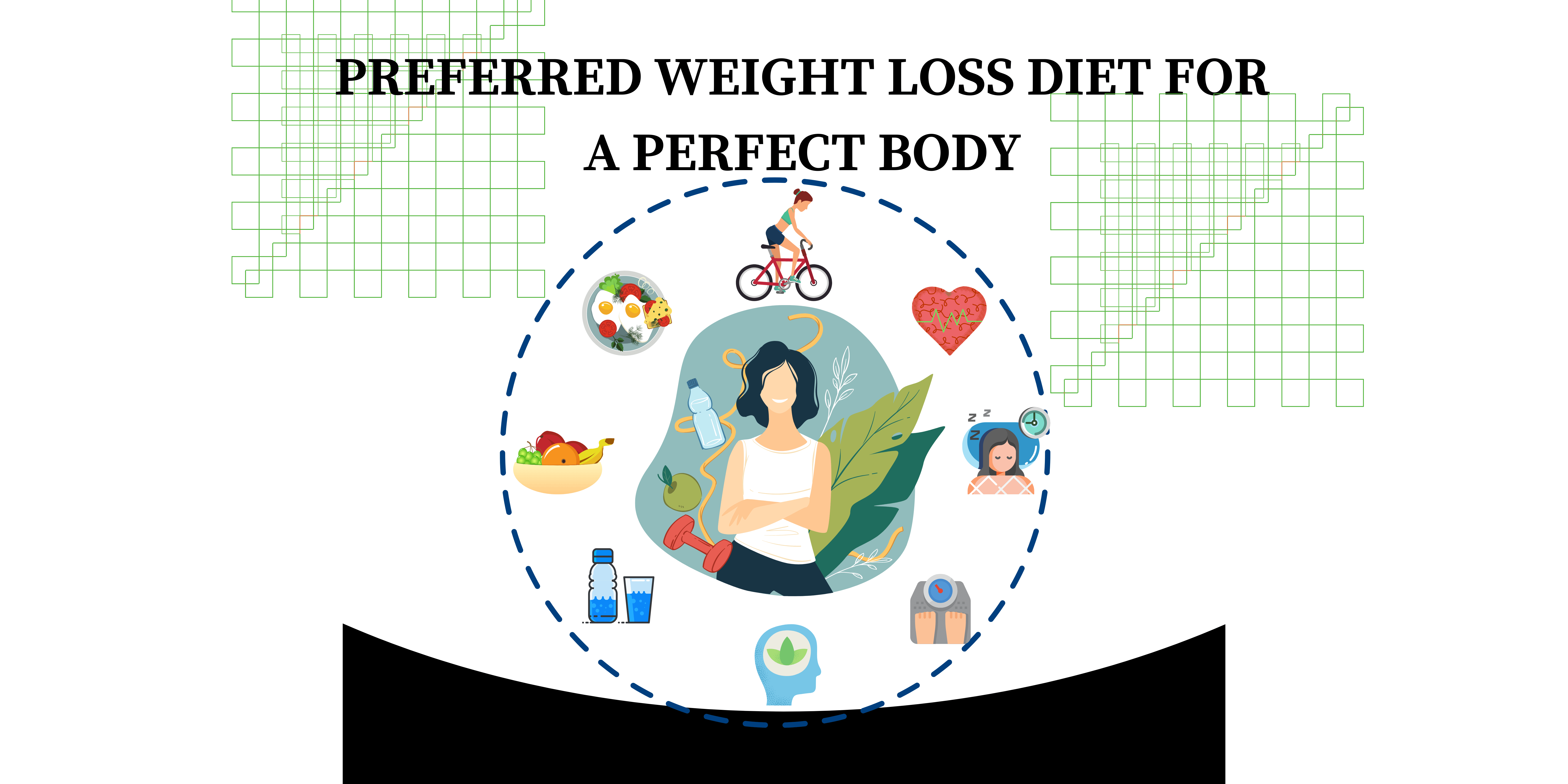There is no one-size-fits-all answer to the “perfect” weight loss diet, as individual preferences, goals, and needs vary. However, I can provide you with some general guidelines and principles that can help you create a balanced and effective weight loss diet:

Balancing Macronutrients for Success
1. Caloric Deficit: Weight loss ultimately comes down to consuming fewer calories than you expend. Calculate your daily caloric needs and create a moderate caloric deficit (typically 500-1000 calories per day) to promote sustainable weight loss.
2. Balanced Macronutrients: Focus on a balanced distribution of macronutrients – carbohydrates, proteins, and fats. Include whole foods from each category to ensure you’re getting a variety of nutrients.
3. Protein Intake: Protein is important for preserving muscle mass and promoting satiety. Include lean protein sources like chicken, turkey, fish, beans, lentils, tofu, and low-fat dairy in your diet.
4. Healthy Carbohydrates: Choose complex carbohydrates that are rich in fiber, vitamins, and minerals. Opt for whole grains, fruits, vegetables, and legumes.
5. Healthy Fats: Include sources of healthy fats, such as avocados, nuts, seeds, olive oil, and fatty fish like salmon. These fats are essential for overall health and can also help control appetite.
6. Portion Control: Be mindful of portion sizes to avoid overeating, even when consuming healthy foods.
7. Hydration: Drink plenty of water throughout the day. Sometimes, hunger and thirst are confused.
8. Limit Processed Foods: Minimize highly processed foods, as they can be high in added sugars, unhealthy fats, and calories. These foods often lack essential nutrients.
9. Meal Timing: Focus on regular meals and snacks to maintain stable blood sugar levels and prevent overeating due to extreme hunger.
10. Physical Activity: Incorporate regular physical activity into your routine. A combination of aerobic exercises, strength training, and flexibility exercises can support weight loss and overall health.
11. Mindful Eating: Pay attention to your body’s hunger and fullness cues. To avoid overeating, chew your food thoroughly and slowly.
12. Sleep: Prioritize getting enough quality sleep, as lack of sleep can affect hormones that regulate appetite and metabolism.
13. Consult a Professional: If possible, consult a registered dietitian or a healthcare professional to create a personalized weight loss plan tailored to your individual needs and health conditions.
Remember, a “perfect” body is subjective and can vary greatly from person to person. It’s essential to focus on overall health, well-being, and sustainable habits rather than striving for an idealized image. Additionally, any significant dietary changes should be discussed with a healthcare professional to ensure they are safe and appropriate for your individual circumstances.




